Director, Eurasia Nonproliferation Program
[email protected]
Berlin, Germany
Areas of Research
- Russia’s foreign and security policy
- Russia’s approaches to arms control and non-proliferation
- Arms control and non-proliferation in the Middle East
- Russia’s defense cooperation with China, DPRK and Iran
Background
Dr. Hanna Notte is the director of the Eurasia Nonproliferation Program at the James Martin Center for Nonproliferation Studies in Monterey, California, and a senior associate (non-resident) with the Europe, Russia, and Eurasia Program at the Center for Strategic and International Studies. She’s also an associate fellow with the Kennan Institute. Her expertise is in Russian foreign policy, the Middle East, and arms control and nonproliferation.
Notte previously worked with the Shaikh Group, a nongovernmental organization focused on informal diplomacy in Middle East conflicts, supporting its engagement with Russia. During her doctoral studies, she was a visiting researcher with the Institute of Oriental Studies of the Russian Academy of Sciences and the Carnegie Moscow Center.
Based in Berlin, her writing has appeared in outlets such as The Atlantic, the Financial Times, Foreign Affairs, the New York Times, War on the Rocks, and ZEIT Online, among others. She is the coauthor of Death Dust: The Rise, Demise, and Future of Radiological Weapons Programs (Stanford University Press, 2023). Notte is a regular guest on conference panels and podcasts produced by leading U.S. and European think tanks. Her book about Russia’s global foreign policy since the full-scale invasion of Ukraine, We Shall Outlast Them: Putin’s Global Campaign to Defeat the West, is forthcoming with W. W. Norton & Company in August 2026.
Education
Dr. Notte holds a doctorate and MPhil in International Relations from Oxford University and a BA in Social and Political Sciences from Cambridge University.
CNS Work
- Russia Isn’t Done With Syria
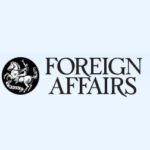 How Moscow Has Retained Influence in the Post-Assad Era
How Moscow Has Retained Influence in the Post-Assad Era - Russia and the Future of the European Security Order
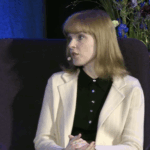 Dr. Hanna Notte spoke at the Helsinki Security Forum 2025 on a panel alongside Sam Charap (RAND), Nigel Gould-Davies (IISS) and Sinikukka Saari (FIIA).
Dr. Hanna Notte spoke at the Helsinki Security Forum 2025 on a panel alongside Sam Charap (RAND), Nigel Gould-Davies (IISS) and Sinikukka Saari (FIIA). - Russia Is Shrewdly Playing the Long Game in Africa
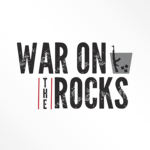 What if Moscow’s most dangerous moves right now aren’t in Europe, but along the Gulf of Guinea?
What if Moscow’s most dangerous moves right now aren’t in Europe, but along the Gulf of Guinea? - OP67: Putin’s New Frontier: The Prospects and Limitations of Africa Corps
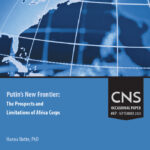 This study chronicles the emergence of Africa Corps and assesses its activities since summer 2023 in relevant African states.
This study chronicles the emergence of Africa Corps and assesses its activities since summer 2023 in relevant African states. - OP66:The Pendulum Swings Back: Envisioning the Future Trajectory of an Increasingly Asymmetric Iran-Russia Defense Relationship
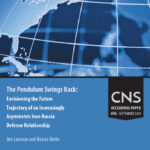 With Russia’s full-scale invasion of Ukraine in February 2022, Iran emerged as an important provider of defense technology to Russia.
With Russia’s full-scale invasion of Ukraine in February 2022, Iran emerged as an important provider of defense technology to Russia. - CNS Experts Join Nobel Laureate Assembly for the Prevention of Nuclear War
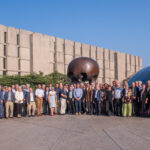 On the 80th anniversary of the Trinity nuclear test explosion in Alamogordo, New Mexico, Nobel Laureates and nuclear experts convened at the University of Chicago.
On the 80th anniversary of the Trinity nuclear test explosion in Alamogordo, New Mexico, Nobel Laureates and nuclear experts convened at the University of Chicago. - Russia no longer needs Iran’s help to sustain the war in Ukraine
 Iran provided Russia with badly needed Shahed 136 combat drones and their production technology early in the Ukraine war.
Iran provided Russia with badly needed Shahed 136 combat drones and their production technology early in the Ukraine war. - Today’s US-Russia détente is unlike those of the past
 Steeled by years of confrontation, Moscow will not give up just anything in hope of future reciprocity.
Steeled by years of confrontation, Moscow will not give up just anything in hope of future reciprocity. - The Peace Tableau: Actions and Aspirations Regarding Ukraine
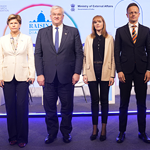 The panel explores the evolving dynamics of peace efforts in Ukraine and how global players are shaping the future of this conflict.
The panel explores the evolving dynamics of peace efforts in Ukraine and how global players are shaping the future of this conflict. - How Big Is Russia’s Appetite for Upheaval?
 Even with Trump’s support, Moscow’s disruptive impulses have their limits.
Even with Trump’s support, Moscow’s disruptive impulses have their limits.
Articles and Activities
- How Ukraine Became a World War
- Russia is weighing the costs and benefits of retaliation
- Containing Global Russia
- Russia’s Dangerous New Friends
- Podcast interview: Russia’s Growing Support for Iran and North Korea
- Is Moscow the Big Winner from War in the Middle East?
- Putin Is Getting What He Wants
- Russia and the Global South
- Russia: A Global Outcast or Still a Desirable Partner?
- What the Israel-Gaza conflict means for Ukraine
- What Role Does Russia Have To Play In Hamas’s Invasion Of Israel? Q&A With Expert Hanna Notte
- US-Russian Relations Can Still Get Worse
- Challenges and Prospects for Further U.S.-Russian Nuclear Arms Control
- Interview: Hanna Notte on Russia in the Middle East After Ukraine
- Dr. Hanna Notte speaks at Lennart Meri Conference in Tallinn
- Russia’s Invasion of Ukraine – The Iran Nuclear Price Tag

